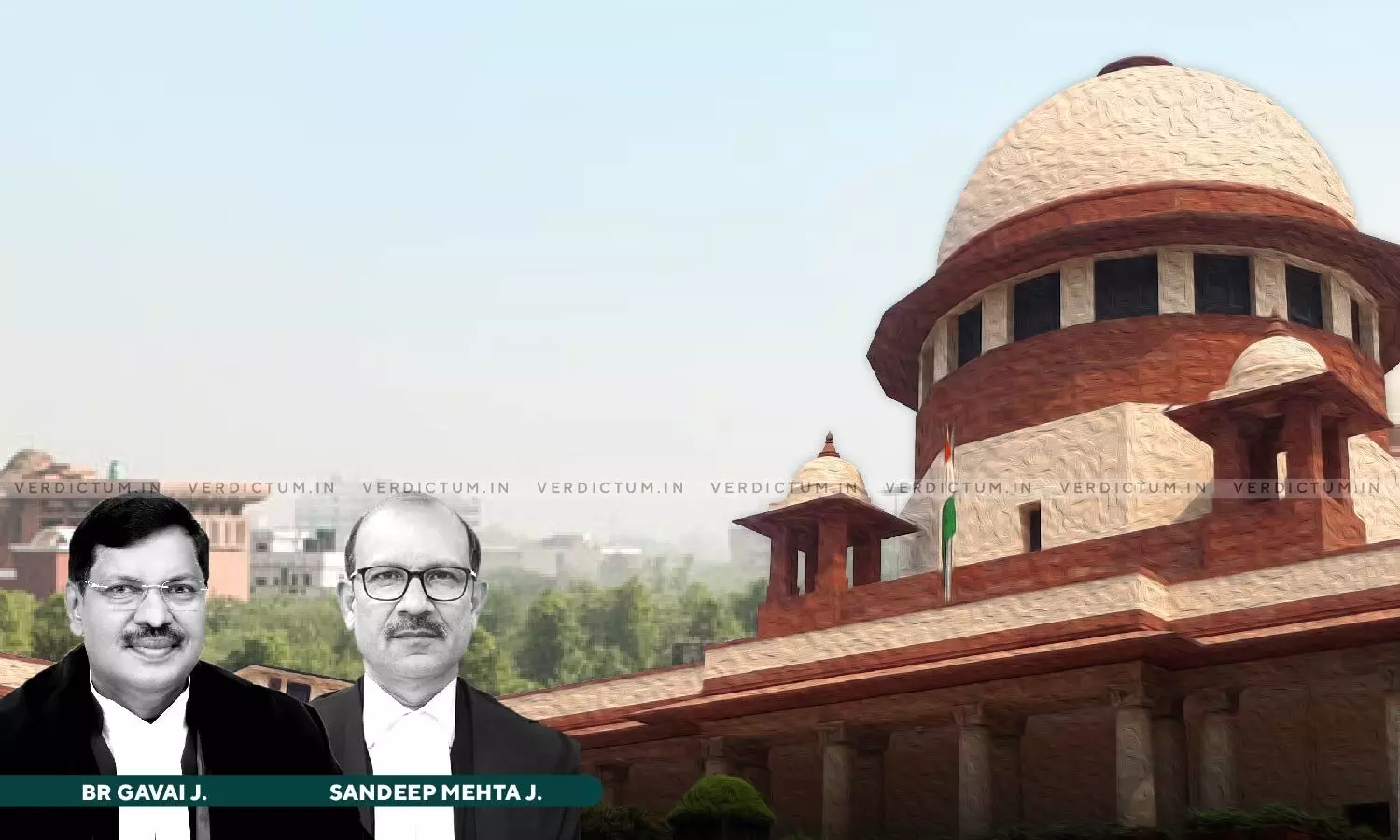
Property Deals Were Benami Transactions; Criminal Prosecution Of Accused Impermissible: SC Quashes FIR Lodged By Govt. Teacher
 |
|The Supreme Court quashed FIR lodged by a Government teacher against some accused after noticing that the property deals he had entered into were benami transactions.
The Court observed thus in a criminal appeal filed against the judgment of the Madras High Court by which it dismissed a plea seeking quashing of proceedings pending before the Judicial Magistrate for the offences punishable under Section 420 read with Sections 120B, Section 294(b), Section 506(ii) read with Section 114 of the Indian Penal Code (IPC).
The two-Judge Bench of Justice B.R. Gavai and Justice Sandeep Mehta held, “It is, thus, clear that the complainant in spite of having made investments in the land deals which were evidently benami transactions, could not have instituted any civil proceedings for recovery against the person(s) in whose name, the properties were held which would be the accused appellants herein. Since by virtue of the provisions contained in Sections 4(1) and 4(2) of the Benami Act, the complainant is prohibited from suing the accused for a civil wrong, in relation to these benami transactions, as a corollary, allowing criminal prosecution of the accused in relation to the self-same cause of action would be impermissible in law.”
Senior Advocate Dama Seshadri Naidu appeared for the appellants while AOR Sabarish Subramanian appeared for the respondents.
In this case, the respondent complainant lodged a complaint alleging that he was having a qualification of M.Sc., MD Graduate and was appointed as a Government teacher in 2007. Before being appointed as a Government teacher, he was doing real estate business for earning his livelihood for past 16 years. While being engaged in the such business, he came into contact with the appellants who were also engaged in the same business. He claimed that he always trusted his partners in business and taking undue advantage of his trusting nature, the accused persons induced him to join their real estate business claiming that they had strong political connections.
The accused allured and induced the complainant right at the inception of the transactions and he was told that the documents need not be registered in his own name and instead the registration be carried out in the name of his sister-in-law. An alternative option was given that if the documents were registered in the names of the accused, the plots could be sold immediately to earn higher profits. By flaunting their political connections, the accused influenced the complainant to make investments into lands assuring that he would reap huge benefits out of these deals. In this manner, the complainant was not allowed to get the purchased properties registered in his name despite he making the investments.
The Supreme Court in view of the facts and circumstances of the case noted, “Section 4(1) of the Benami Act makes it clear that no suit, claim or action to enforce any right in respect of any property held benami against the person in whose name the property is held or against any other person, shall lie or on behalf of a person claiming to be real owner of such property. Such person cannot raise a defence based on any right in respect of any property held benami either against the person in whose name the property is held or against any other person. Section 4(2) prohibits the institution of any suit, claim or any other action by and on behalf of a person claiming to be the real owner of such property.”
The Court said that necessary ingredients of the offences punishable under Sections 406 and 420 of IPC are not made out against the accused appellants from the admitted allegations set out in the complaint and the charge sheet and it cannot be doubted that a dispute which is purely civil in nature has been given a colour of criminal prosecution alleging fraud and criminal breach of trust by misusing the tool of criminal law.
“The complainant alleged that the accused abused him by using profane language. Section 294(b) IPC would clearly not apply to such an act. Apart from a bald allegation made by the complainant that A-1 abused him and intimidated him on 28th July, 2010, there is no material which can show that the accused indulged in criminal intimidation of the complainant so as to justify invocation of the offence punishable under Section 506(ii) IPC”, it further noted.
The Court also said that the complainant tried to misuse the tool of criminal law by filing the patently frivolous FIR, wherein the allegation was levelled regarding the so-called incident of criminal intimidation. It added that the criminal prosecution instituted against the accused appellants in pursuance of the totally frivolous FIR tantamount to sheer abuse of the process of law.
“… in view of the clear bar contained in Section 4 of the Benami Act, the complainant could not have sued the accused appellants for the same set of facts and allegations which are made the foundation of the criminal proceedings. Since, if such allegations do not constitute an actionable civil wrong, in such circumstances, allowing the prosecution of the accused appellants for the very same set of facts, would tantamount to abuse of the process of law”, it reiterated and concluded.
Accordingly, the Apex Court allowed the appeal and quashed the criminal case against the appellants.
Cause Title- C. Subbiah @ Kadambur Jayaraj and Others v. The Superintendent of Police and Others
Appearance:
Appellants: Senior Advocate Dama. Seshadri Naidu, Advocates Pai Amit, Pankhuri Bhardwaj, Abhiyudaya Vats, and AOR Tushar Bakshi.
Respondents: AOR Sabarish Subramanian, Advocates C. Kranthi Kumar, Vishnu Unnikrishnan, Naman Dwivedi, Sarathraj B, Danish Saifi, AOR M.P. Parthiban, Advocates Priyaranjani Nagamuthu, R. Sudhakaran, Bilal Mansoor, Shreyas, Kaushal, and Amod Bidhuri.